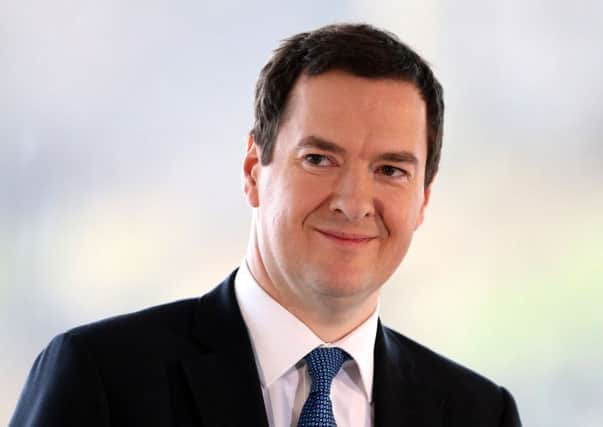Enough is enough, CBI tells Osborne on policy burden


In its Budget submission to Chancellor George Osborne, published today, the CBI also singles out the Apprenticeship Levy as part of the “cumulative burden” that it says will cost business about £29bn over the course of this parliament.
Carolyn Fairbairn, the organisation’s director-general, said her members accepted the living wage and apprenticeship levy were “here to stay” and would work with them. But she warned: “It’s time for no more, otherwise there’s a real risk to growth and prosperity.”
Advertisement
Hide AdAdvertisement
Hide AdFairbairn said: “The UK needs to be able to grow its way out of the deficit, but the danger of this rising policy burden is that it holds back businesses, particularly smaller firms.”
The CBI estimates that current business rates will cost firms a total of £4.8bn over this parliament to 2020, plus £12.6bn from the living wage and £11.6bn from the corporate apprenticeship levy.
The CBI chief added: “This cost burden has now crept up far enough.”
The government has been conducting a review of the business rates system in England and Wales (rates are devolved in Scotland) with an announcement of its findings expected at or near the time of next month’s Budget.
Separately, Scottish finance secretary John Swinney has promised a review of business rates north of the Border sometime in 2016.
The CBI recommended in its 11-page letter to Osborne that the business rates regime would be made fairer and less onerous by removing the smallest businesses – with rateable property values below £12,000 – from the system altogether, and having more frequent property revaluations on shops, offices and factories.
Osborne is also urged to stay his hand on changes to pensions taxation. The CBI said: “[A total of] 79 per cent of employers said changes to pension taxation should not be a priority for the government … 59 per cent of businesses believe that their employees would level down their own contributions if a flat rate was put in place over the current system of upfront tax relief.”
The CBI also calls for an independent national exports commission to be set up to help turn around the UK’s lacklustre exports performance, as well as “clarity” on the future path of the carbon price floor beyond 2020.
Advertisement
Hide AdAdvertisement
Hide AdFairbairn said easing the overall burden of government policies on businesses was even more important given the recent worsening of the macro backdrop including stock market turbulence and the Chinese slowdown.
“Any more [policy changes] could really tip investment decisions, growth plans and job creation. That sense is coming over,” she added.